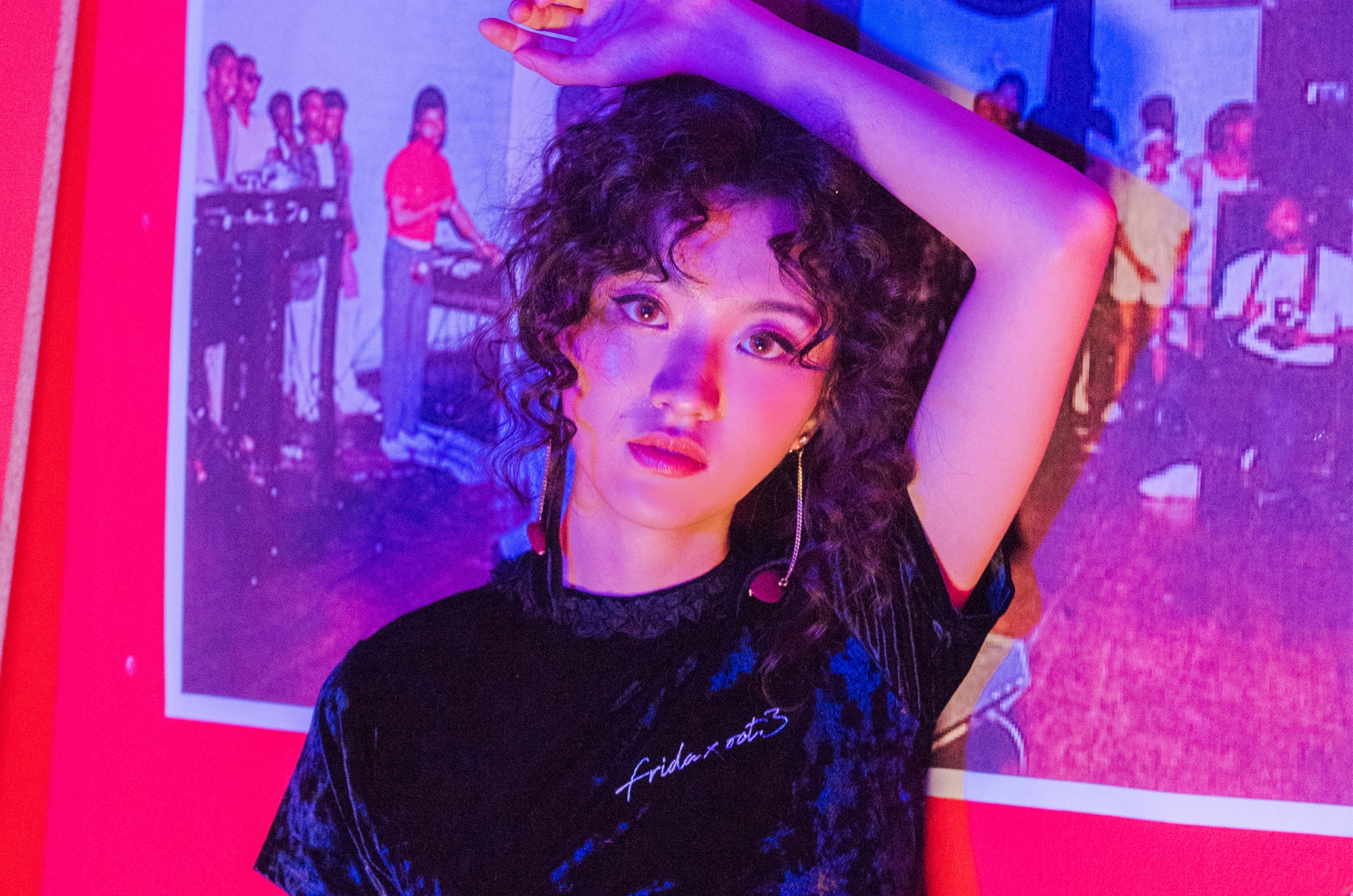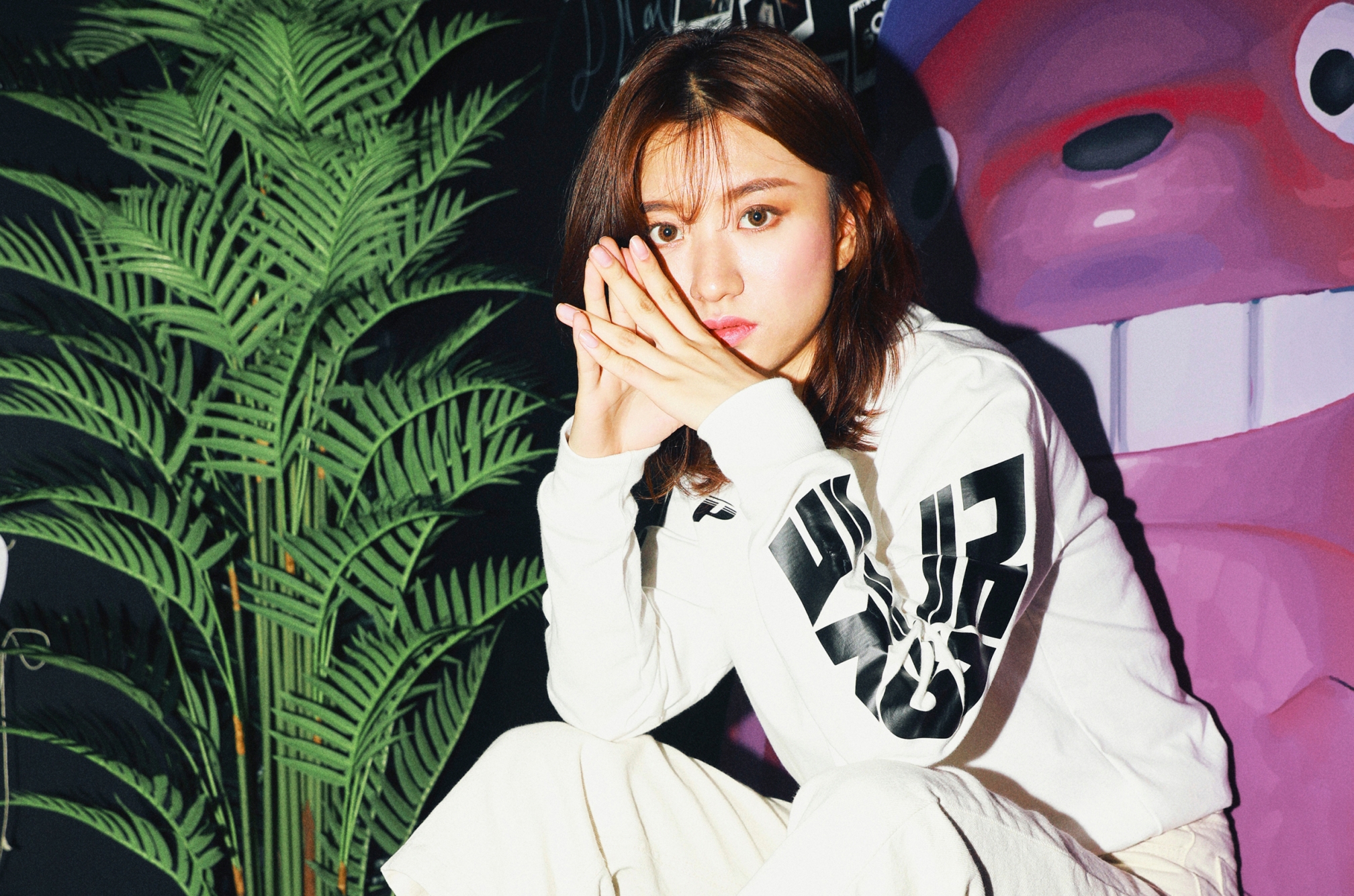 Features
Features
Didi Han: "In Asia, music is the common language replacing English or Korean."
Funky, fresh and blaring fun, Didi Han is one to watch in Korea
It seems like everyone is talking about Didi Han. And we’ve been swept up by the buzz too.
It’s been eight years since Danbi Han heard Nicolas Jaar’s BBC1 Essential Mix (which won him Essential Mix of the Year). When the two-hour mix ended, she put to rest her short-lived dream of working in fashion and her life careened into music full time. She bid farewell to the glitz and glamour of Korea’s high-profile world of fashion for her bedroom, and for the years that followed that she spent hours in there honing the art of eclecticism by uploading mixes to SoundCloud and morphing into her Didi Han persona. Her goal from the get-go was to be ambitious with her style and ignore the convention laid out by Korea’s sugar-coated pop-driven music culture. Instead of focusing on what gets likes, her sets are more akin to listening sessions that move through disco, house and techno and are a portrayal of her own musical journey where she uses various techniques to stimulates people's imaginations in other ways than just mixing.
Then she fell into the graces of Seoul-based collective Deluxe Seoul (then Pute Deluxe) and a Boiler Room appearance saw her gain a bit of global notoriety. Hot off the heals of these performances, she went on to support acts like Flume, Brodinski and DJ Falcon alongside gigs with brands like Nike, GQ and Dior. She’s remained booked and busy, with shows as far as Berlin, Amsterdam and London, now headlining a Mixmag Asia-curated tour that’s stopping in Hong Kong and Ho Chi Minh City this week. Meanwhile she's also busy preparing to put her production chops to the test when she releases her first album of singles next month. Didi Han is poised to become Asia’s one to watch and to dispel any doubts, listen here:
The life of Didi Han sounds a lot like her music — funky, fresh and blaring fun. We dialed her up and threw 20 quick questions her way, getting into the mind and dance floor of Didi Han.
It's funny, every time I type your name into Google, I somehow end up with Star Wars results. How did you get your name anyway?
Actually, it started at University and just kind of stuck. My English teacher called me DD, which is short for 'Drunken Danbi' because I was always drunk and dancing during festival season. Eventually, everyone was calling me DD, which carried over to my DJ name. I just slapped on my family name, and I was good to go.
What’s the best thing about living in Seoul?
All the people I love live in Seoul and nothing is better than Korean soul food, especially since we have a super-fast delivery system (the west really needs to get on this wagon).
And what’s the worst thing about living in Seoul?
DUST — especially in the spring and autumn. We need to protect our planet better.
Take us out for a night in Seoul — from dinner, drinks, party to afterparty?
We start at Parc for dinner, which is a traditional Korean restaurant that is incredibly healthy, too. Next up is 232 Seoul for a drink — I like it there because they always play good music to chill out to. Last stop is Soap Seoul to dance the night away, but if you want to party a little harder, Faust or Volnost are always a good choice.
Every DJ can remember the moment that, like a lover, electronic music changed their life. What was yours?
Easy one. Nicolas Jaar’s BBC Essential Mix change my life by opening me up to a whole new world. It was like watching a movie with my ears. It was so different than anything I’d ever heard before, and it was love at first listen. It’s because of that single moment that I started DJing.
And since that moment, how have you seen Korea's underground music scene evolve?
Then, I felt all the good music venues could fit on one list. But today, there are forever places even I've never even heard of — and I'm a DJ in Seoul! So I can definitely say that the underground scene has grown up. While the number of people underground clubs when compared to more mainstream establishments is still small, it seems more and more people are becoming more interested in underground culture—and fast.
Your style and sound sounds like nothing that's ever come out of Korea before. With Gangnam culture and K-Pop being the definitive sound, how did you develop your style, and why do you think it became so popular?
I'm so lucky to have started my DJ career with Deluxe Seoul, where people coming to our parties were already open-minded to an alternative style of music. I was able to do whatever I wanted without worrying about what the public thought. I'm don't think I'm very popular though, so thanks.
Musically speaking, what artists do you find yourself resonating and vibing with the most?
Four Tet is my be all end all. When I listened to his new EP 'Anna Painting', I felt like I was inside of his dream—peaceful but solid. The second track is like entering a flower shop, pure and fragrant, and left me feeling dry sounds. Then I discovered the track's name is 'Lahaina Noon', which refers to a tropical solar phenomenon when the sun culminates at the zenith at solar noon, passing directly overhead). It perfectly depicts what I feel he is trying to explain through his music. I love artists who explain their world actively, a concept that hugely inspires me.

We've seen a clip of you out and about recording sounds. What are you capturing and how does this element add to your sets?
These recordings are actually for my next EP. Actually, I've already finished an album of singles, which will be released soon. But for the next one, I want to use my own sounds from various influences so I can weave my life into my music, so I've been busy collecting sounds.
Even in my sets, if you listen carefully, I'm always trying to stimulating people's imaginations in other ways from just beat matching. I like to conceptualise movie scores, like from Xavier Dolan and Tarantino flicks, and weave cinematography techniques into my sets. This can be things like doors closing, the sound of footsteps, vinyl being turned on, or even lines from the movie.
What's your process like when looking for new music?
I love perusing record shops but in Seoul we can't shop for vinyl like in Europe. But I do my research online anyway, for when I get to go to Europe, and try to find inspiration from there. Instagram is a big one because I follow a lot of artists, so I know exactly when they're releasing music. Platforms like Bandcamp, Spotify and even Apple are great resources for artists in Asia.
What’s one thing everyone gets wrong about you?
People think I am a heavy drinker because of my name (and how I got it). But actually I’m a pretty light drinker, by no means a lightweight, but a lighter drinker.
Name three tracks can you always play that never get old?
Daft punk ‘Something About Us’
Asoto Union ‘Think about’Chu’
Marlena Shaw ‘Touch Me In The Morning’
What’s the best piece of advice you’ve ever been given?
Do your own thing!
We know you left a career in fashion for music but judging from your Instagram account, you're still very in-the-know in the world. What are some Korean brands we should check out immediately?
I'm definitely not in tune to that world like I was in the past, but I do like Kanghyuk, Moonsun and Kijun. There are just SO MANY talented designers in Korea doing cool things.
You experienced clubs and festivals all around the world but coming back to Asia, where have you played that really blew your mind?
About two or three years ago, I went to New Delhi, India. It was my first oversea gig as a solo DJ. And the city has such a big music scene which I totally didn't expect before I go there. I felt that people are really enjoyed my set and trusted me since they didn't really know who I was. The local DJs out there are cool and doing great things.
From there, I toured many Asia countries and discovered that there is a strong music culture everywhere. In fact, there is not much difference with Seoul. I also found it really easy to become friends with people through music; in Asia, music becomes is the common language replacing English or Korean.
Who inspires you?
Sakamoto Ryuichi
Pute Deluxe is has become a bit of a buzzword around. Tell us about it and how you became affiliated with them?
Actually, we changed our name to Deluxe Seoul. So, it was originally founded by Julian and Yann because they wanted to create an environment where people would come specifically to enjoy the music. They knew I was a bedroom DJ, just uploading my mixes to Soundcloud but because I knew them, they listened to my set and eventually asked me to join them. How lucky!
I love it most when…
I'm eating seafood with a good soundtrack and even better people.
If the world were ending, what’s the last record you would play?
Ennio Morricone 'La Bambola' (Version 3)
In five years, I will be…
...a better person and following my rules that I have made for myself (not anyone else's).
Follow Didi Han on Instagram and SoundCloud.


